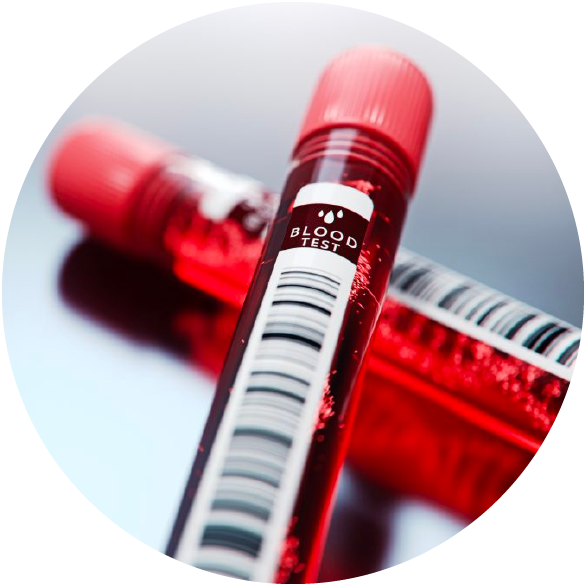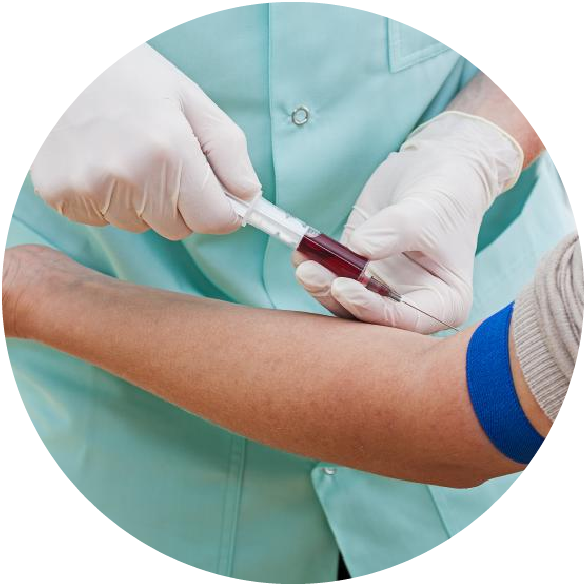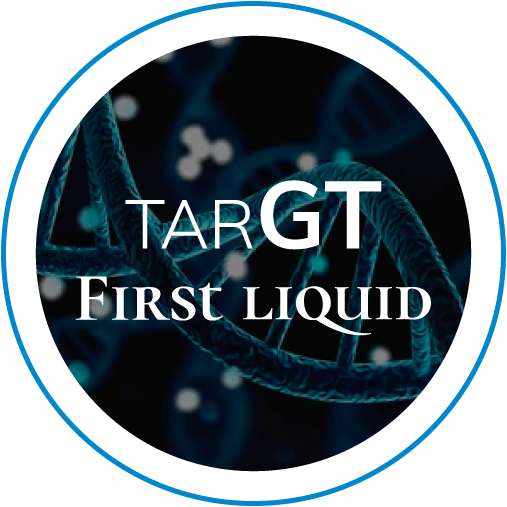What is Liquid Biopsy?
Liquid biopsy is a minimally invasive molecular genomic approach that isolates and analyses circulating tumor DNA (ctDNA) from the blood to provide insights on Treatment monitoring, Quantification of Disease Burden, MRD status, and Disease Surveillance. It is an alternative approach to invasive tissue biopsy-based genomic testing.
Liquid biopsies could provide a potential revolution in cancer diagnosis and treatment. The blood analytes, like ctDNA, are released by tumors and analyzed as a biomarker by a liquid biopsy.
When should a liquid biopsy be ordered?
Liquid biopsy can be suggested in different stages of the cancer management journey. Still, it is mainly ordered in two different scenarios when there are limited or no options to extract tumor tissue through tissue biopsy or detect the presence of MRD or Minimal Residual Disease. Other indications where Liquid Biopsy suggestions are given include Baseline molecular profiling testing, Quantification of disease burden, to name a few.
Who needs to get tested?
Cancer patients in one of the following categories are eligible for a liquid biopsy test:- For patients where invasive tissue biopsy is not an option.
- The tissue biopsy material is old, damaged, or incorrectly fixed in FFPE.
- Where the tissue is limited or no tissue is present for further analysis.
- Patients who need to monitor their response to therapy.
biopsy, it is not ideal for diagnostic purposes and does not replace conventional biopsy which is the
"Gold Standard".
When does a person need to get tested with Liquid Biopsy?
Cancer patients who fit into one of the following categories are eligible for a Liquid biopsy test:- Examining the efficiency of the cancer treatment and monitoring the rate of relapse.
- Comprehensive analysis of cancer resistance.
- Assessment of cancer patients' clinical response toward a treatment.
How Liquid Biopsy testing differs from Tissue biopsy testing?
In oncology, liquid biopsies are used for various reasons. They can be used as a screening technique by looking for specific mutations or evaluating the entire sample for mutations. They are critical in the precision therapy and monitoring of relapse in patients who are in remission. NGS approaches are utilized to detect genomic modifications of interest in each case. Liquid biopsy testing also takes a considerably smaller sample and produces results much faster than tissue biopsies.Tissue biopsies are valuable in determining the nature of tumors, including the type of malignancy, tumor gene expression, and the presence of treatment-resistant mutations. However, several factors influence this, such as tumor location, amount of tissue available, and accessibility for surgical removal. In such scenarios, liquid biopsy becomes a potent alternative for cancer diagnosis.
Disclaimer: Though liquid biopsy is a minimally invasive, advantageous investigational test over tissue biopsy, it is not ideal for diagnostic purposes and does not replace conventional tissue biopsy, which is the "Gold Standard".
What are the future applications of liquid biopsy?
Liquid biopsy has the potential to aid in the management of cancer such as Non-Small Cell Lung Cancer (NSCLC). It has the ability to detect cancer at all stages of the disease, cancer screening, MRD detection to guide adjuvant treatment, early identification of relapse, the commencement of systemic therapy, response monitoring (targeted or immunotherapy), and resistance genotyping.




 Kindly fill the form below to download our Liquid Biopsy Portfolio brochure :
Kindly fill the form below to download our Liquid Biopsy Portfolio brochure :